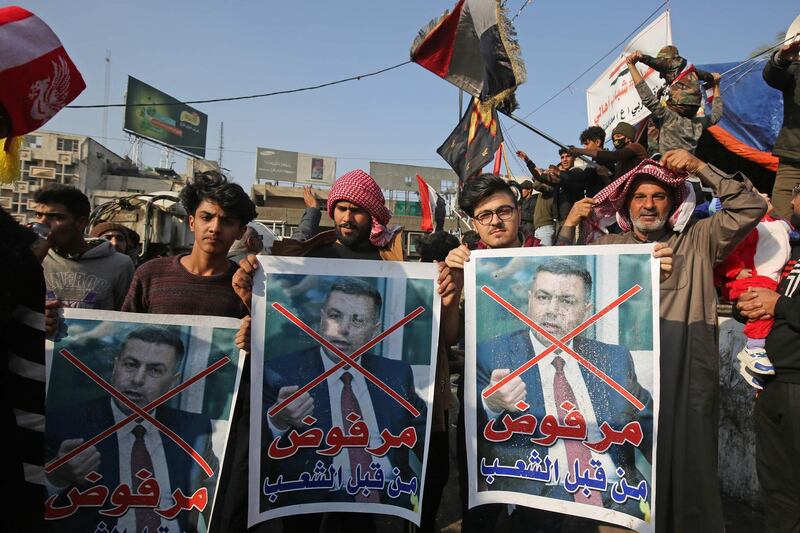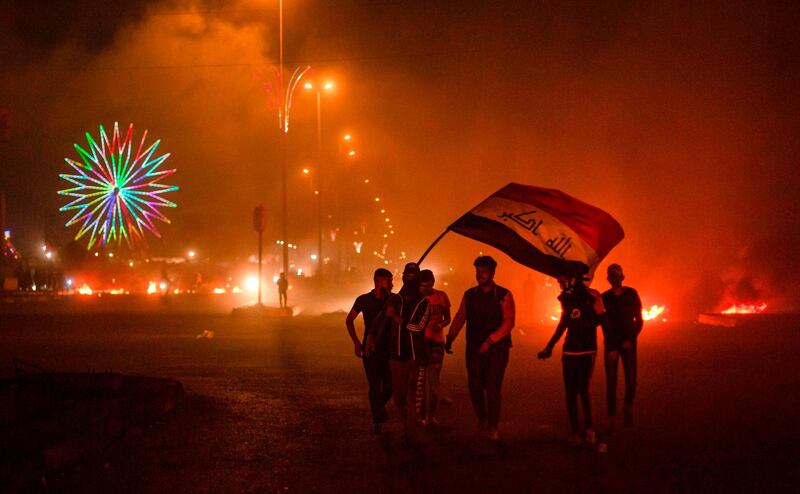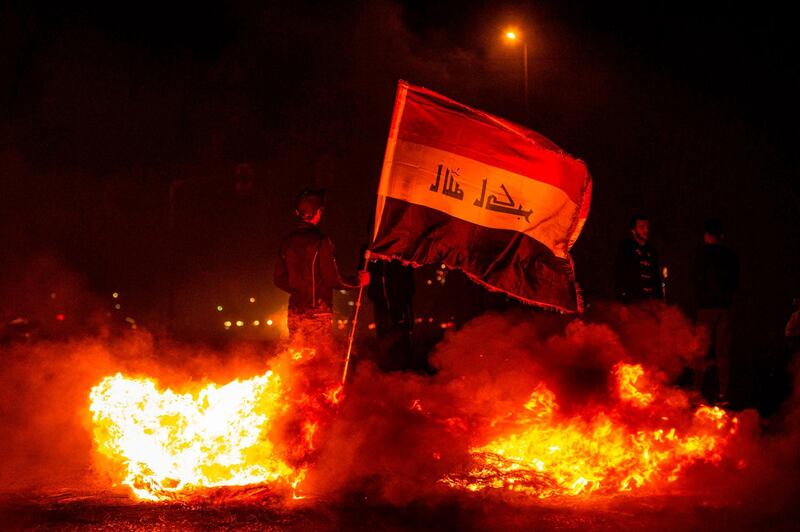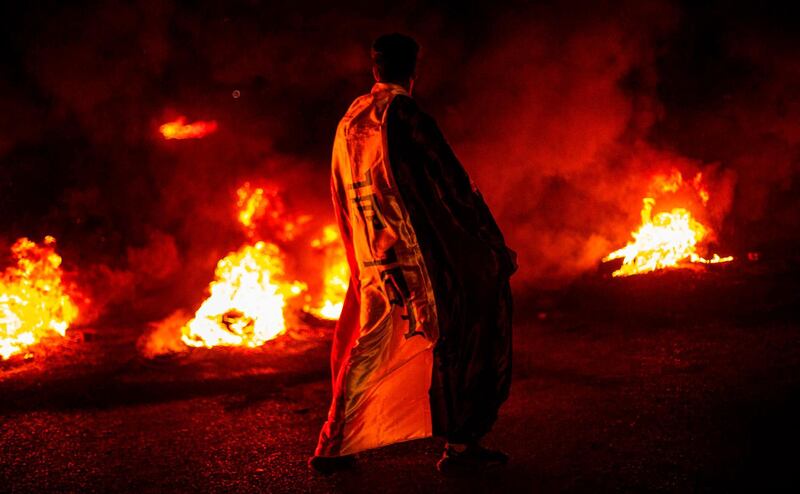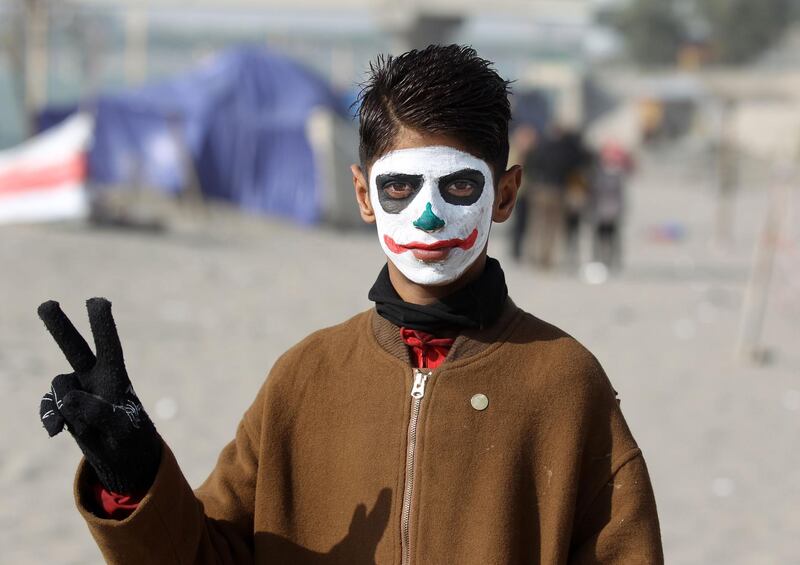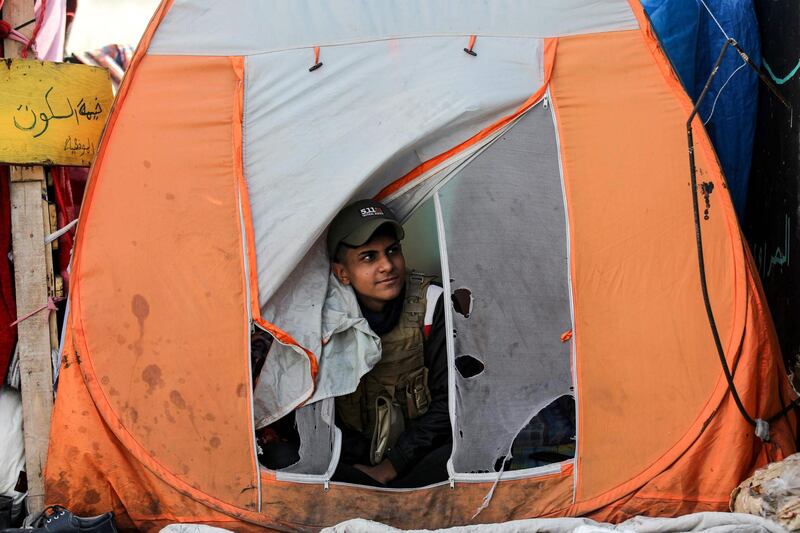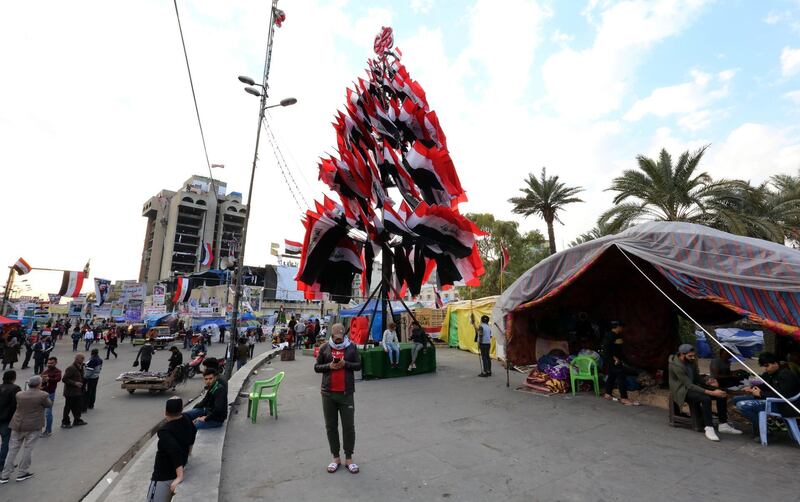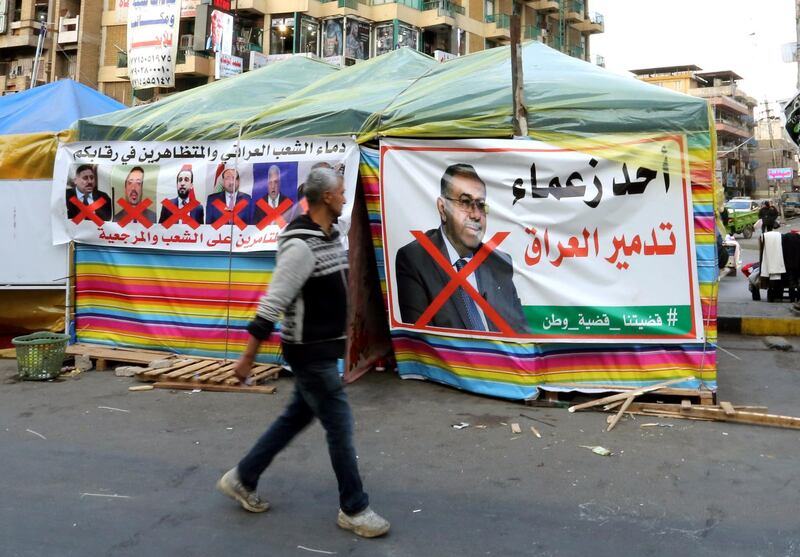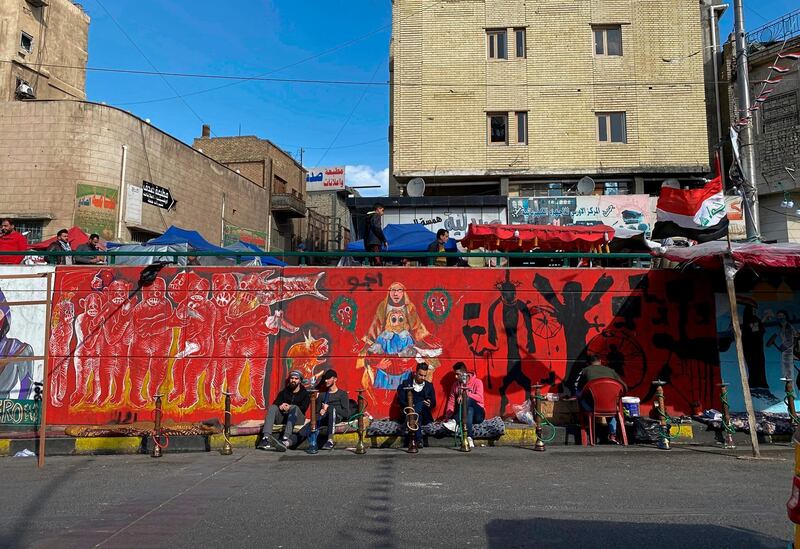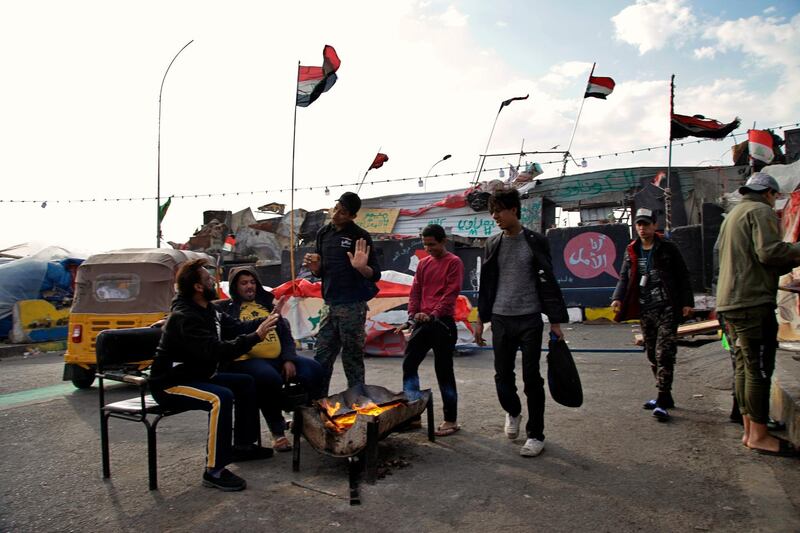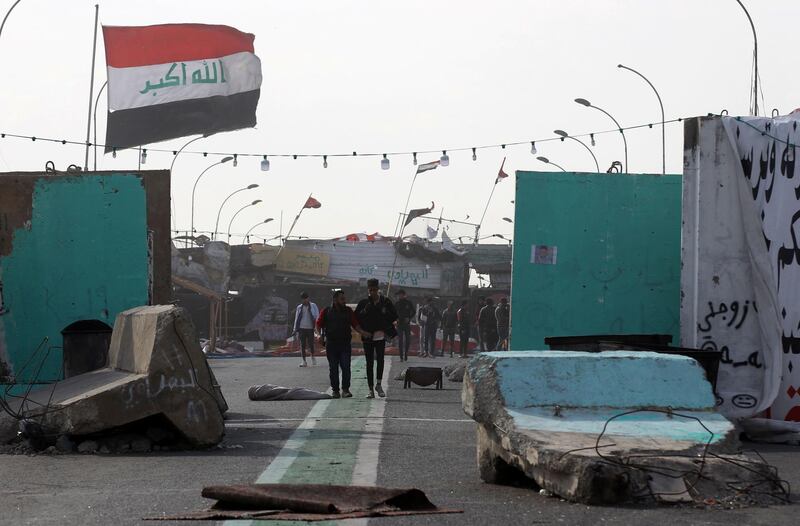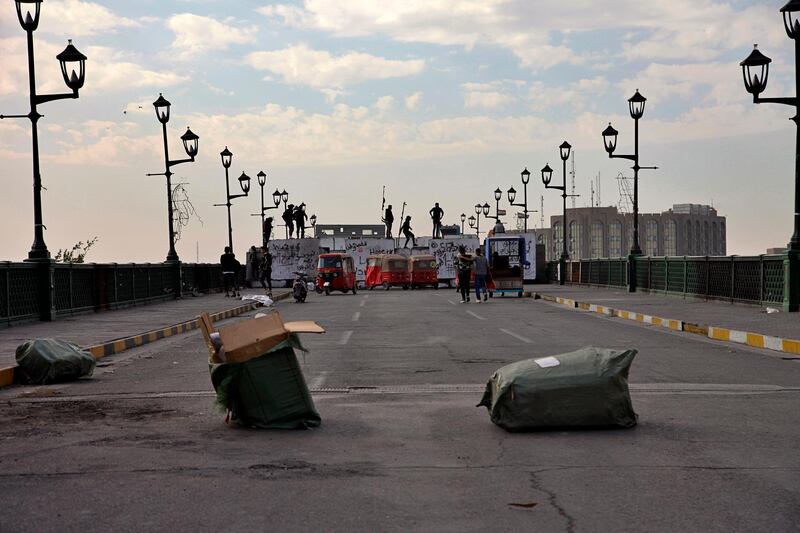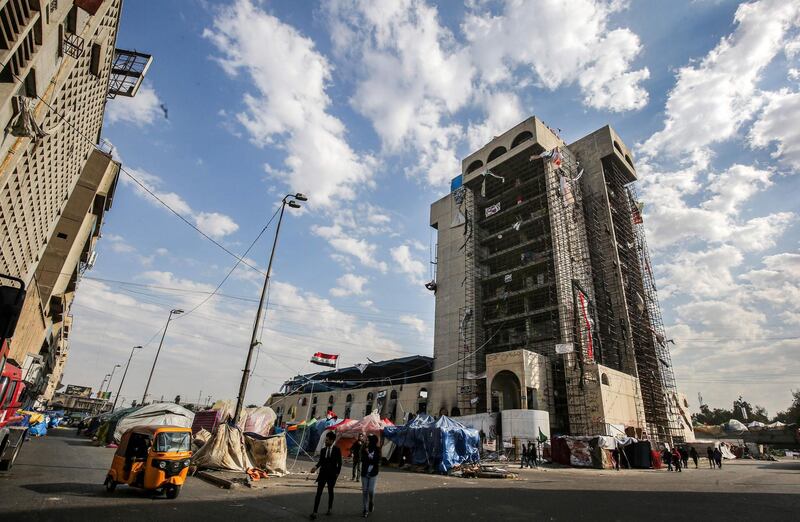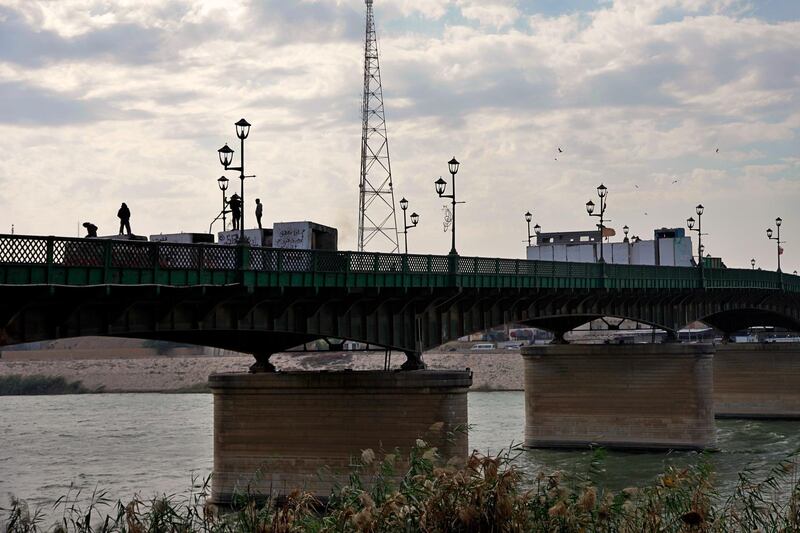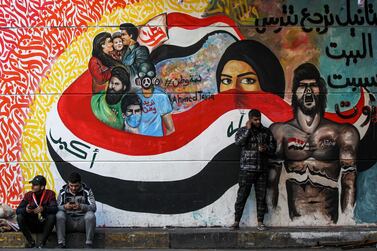Iraqi protesters have rejected the nomination of Assad Al Eidani as the country’s next prime minister demanding an independent candidate to head the government.
Demonstrators have rallied for almost three months in attempt to ouster the political ruling elite that has run the country since 2003.
The rejection on Thursday comes President Barham Salih said he was "prepared to resign" in protest against the nomination of Mr Al Eidani.
Mr Salih said in a letter to parliament that he would rather resign than appoint someone to the position who would be rejected by protesters.
He said the constitution did not give him the right to reject nominees for prime minister, so he was ready to submit his resignation to parliament.
Outgoing Prime Minister Adel Abdul Mahdi announced his resignation in November after the most powerful religious authority, Ayatollah Ali Al Sistani, withdrew support for his government.
Mr Al Eidani, who is governor of Basra and former minister of youth and sports, is the latest candidate to be chosen by a pro-Iranian parliamentary bloc.
"We don't want Assad the Iranian," protesters shouted in the southern city of Kut.
Demonstrators rallied in Baghdad’s Tahrir Square and across southern provinces on Thursday calling for an independent candidate for the vacant position.
Roads and bridges were blocked in various cities after several buildings were set alight on Wednesday night.
Smoke and flames from burning tyres in Nasiriyah, Basra and Diwaniyah blocked major roads and bridges across the Euphrates all night, AFP reported.
In Nasiriyah, demonstrators set the provincial government building on fire for a second time since the protests began and protesters also torched the new headquarters of a pro-Iran militia in Diwaniyah.
Protesters are calling for a technocrat nominee with no ties to Iran or the political system set up after the US invasion that ousted dictator Saddam Hussein.
More than 450 people have been killed and 25,000 injured since the protest movement started in early October.
Outgoing higher education minister, Qusay Al Suhail, who was nominated by the Binaa parliamentary bloc but rejected by the public, withdrew his nomination for prime minister late Wednesday.
A deadline to name a new prime minister has been missed twice over disagreements over which is the largest bloc in the parliament following last year's elections.
There are currently two main blocs; Islah, led by populist Shiite cleric Moqtada Al Sadr, and Binaa, headed by Hadi Al Amiri.
But the numbers in the blocs have continued to change since last year's elections, with an unknown number of lawmakers leaving some blocs and joining others.
The development came as parliament passed a new electoral law on Tuesday, which has done little to calm public anger.
The new law would divide Iraq into districts with a member of parliament elected from each.
It will allow voters to elect individual politicians instead of choosing from party lists.
In addition, each member of parliament will get to represent a specific electoral district instead of groups of legislators.
It was welcomed by the majority of political parties but was rejected by the previous vice president Ayad Allawi’s Al Wataniya coalition.
“The coalition expressed its shock at the passing of the law. The parties that possess money and weapons are the biggest beneficiaries of this law, and they will not pay attention to the public’s demands,” the coalition said.
“The adoption of this law is full of mines and would shatter the hopes of early election as it violates the constitution.”
It is unlikely the electoral law alone will be enough to quell the rising discontent of Iraq's protesters.
